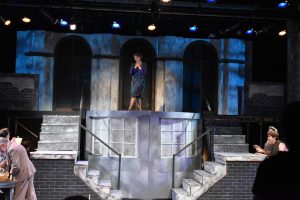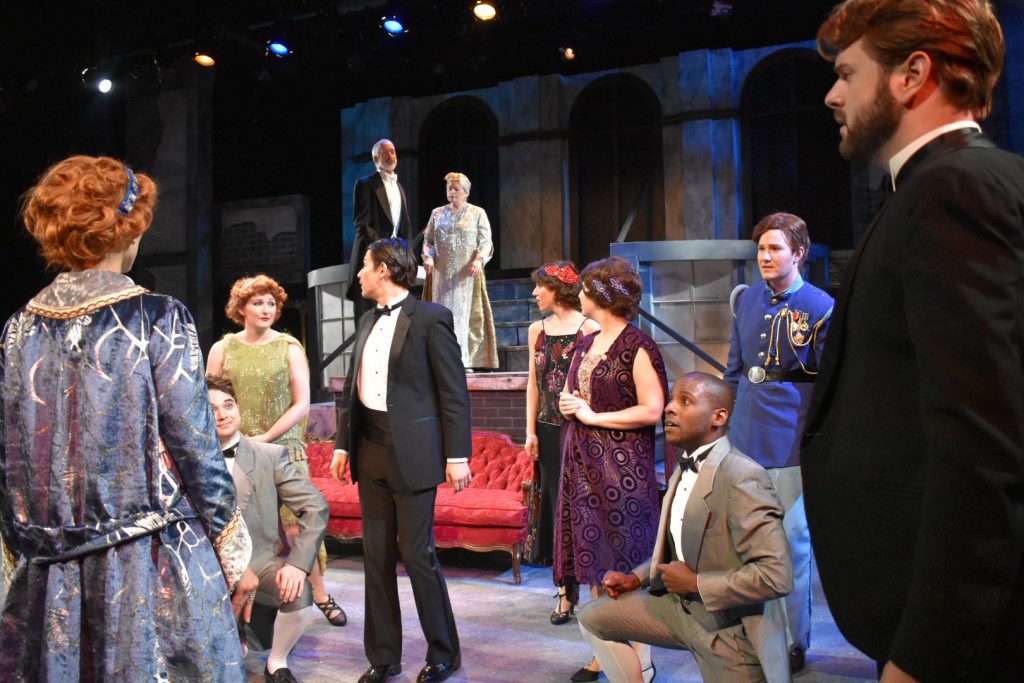Folks Operetta’s sumptuous ‘Csárdás Princess’ triumphantly takes the crown for comedic escapism
By Ian Rigg
Folks Operetta’s “Reclaimed Voices” series ventures to restore and reclaim the lost voices of Jewish operetta and opera composers from the Second World War. Their latest resurrection is The Csárdás Princess by Emmerich Kálmán, a comedically operatic balm for troubled times.Director Gerald Frantzen presents a glamorous (if melodramatic) window into early 20th century Viennese high society, with a crew whose craftsmanship cannot be denied. Their rich talents coalesce to tell the complicated love affair between provincial nightingale Silva Varescu and lovelorn scion Edwin Weylersheim.

Set designer Eric Luchen conjures an impressively versatile stage, deftly rearranged and tactfully weathered to represent a factory floor, or burnished marble of an upper class gala (depending on wherever the wild metronome of the script has swung). Lit brightly by Erik Barry, choreographer Emily Kleeman crafts traditional dances executed with a thrilling contemporary energy. And costume designer Patti Roeder might be the real star of the show. Her lustrous and lavish costumes brim with class and color: every bauble, sash and spat sings to the rafters, amplified by Laura Martino’s wonderful wig work.The cast of voices is downright incredible. Audiences will be entreated to Jonathan Zeng’s valiant tenor, the playful baritone of William Roberts, the deft stylings of Emma Sorenson, and as the titular character Katherine Petersen makes an immaculate soprano. And as a chorus, this cast is truly tremendous.
The actors appear to have been directed that they were in a melodrama, and perhaps it’s better that they have, because that’s what this operetta is. It’s a farcical comedy of errors and misunderstandings that move at a lightning pace in a bubbly but not entirely bright world where social stations stand in the way of love. A wild romp about secret weddings, hidden engagements, impersonating spouses and the impropriety of wedding a cabaret singer. It is not particularly deep. What is truly remarkable is the
Kálmán created escapist satire on the surface, but below he reached down deep, and dug below the laughter to stir souls. He wrote a sumptuous score for his homeland. He wrote of love. He wrote of joy. And he wrote of its triumph.
And while that may not be precisely what The Csárdás Princess is, it’s how it sounds. It sounds like triumph.

